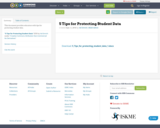
This document provides educators with tips for protecting student data.

This document provides educators with tips for protecting student data.
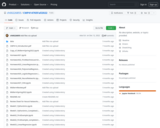
This is the GitHub repository for course CMP 414/765: Artificial Intelligence taught at The City University of New York, Lehman College, in Fall 2022
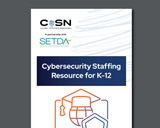
Cybersecurity represents a comprehensive challenge facing all staff in K-12 organizations and requires the creation of a culture of cybersecurity within each K-12 organization. This paper identifies and addresses staffing cybersecurity across the K-12 organization, including identifying several strategies for staffing cybersecurity within the school system. These strategies include developing focused cybersecurity positions; incorporating cybersecurity duties and responsibilities in all existing K-12 technology positions, leveraging cross-district collaboration and/or managed services to augment cybersecurity staffing; and expanding the expectation that cybersecurity is a responsibility of all members of the K-12 education community.

This course provides an introduction to the technology and policy context of public communications networks, through critical discussion of current issues in communications policy and their historical roots. The course focuses on underlying rationales and models for government involvement and the complex dynamics introduced by co-evolving technologies, industry structure, and public policy objectives. Cases drawn from cellular, fixed-line, and Internet applications include evolution of spectrum policy and current proposals for reform; the migration to broadband and implications for universal service policies; and property rights associated with digital content. The course lays a foundation for thesis research in this domain.
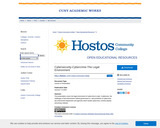
This presentation covers the legal environment of cybercrime to date. It addresses: the challenges of law enforcement; federal government vs. state jurisdiction of cybercrime; law enforcement department and agencies which handle cybercrime; criminal statutes and privacy statutes.
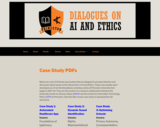
These are a set of fictional case studies that are designed to prompt reflection and discussion about issues at the intersection of AI and Ethics. These case studies were developed out of an interdisciplinary workshop series at Princeton University that began in 2017-18. They are the product of a research collaboration between the University Center for Human Values (UCHV) and the Center for Information Technology Policy (CITP) at Princeton. Click the title of each case study to download the full document.
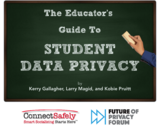
This guide is meant to help teachers utilize technology in the classroom while protecting their students’ privacy.
Technology tools and apps are making it possible for educators and students to collaborate, create, and share ideas more easily than ever. When schools use technology, students’ data—including some personal information—is collected both by educators and often the companies that provide apps and online services. Educators use some of this data to inform their instructional practice and get to know their students better. It is just as essential for educators to protect their students as it is to help them learn.
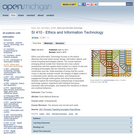
Ethics and Information Technology focuses on the ethical dilemmas that exist where human beings, information objects, and social computing technologies interact. The course explores emerging ethical models from historical and cross-cultural perspectives and then applies these models to a variety of new and emerging technologies that are inherently social in their construction and use. Initial examples of issues that the course covers in discrete modules include: the integrity of digital content in a networked world; identity and avatars; and interpersonal engagement through online games and virtual environments. Students explore the technological underpinnings of associated technology systems, experiment with individual and group interaction with technologies, and examine the mechanics of ethical and unethical behaviors.

This course considers the interaction between law, policy, and technology as they relate to the evolving controversies over control of the Internet. In addition, there will be an in-depth treatment of privacy and the notion of “transparency” – regulations and technologies that govern the use of information, as well as access to information. Topics explored will include:
Legal Background for Regulation of the Internet
Fourth Amendment Law and Electronic Surveillance
Profiling, Data Mining, and the U.S. PATRIOT Act
Technologies for Anonymity and Transparency
The Policy-Aware Web

This resource is a video abstract of a research paper created by Research Square on behalf of its authors. It provides a synopsis that's easy to understand, and can be used to introduce the topics it covers to students, researchers, and the general public. The video's transcript is also provided in full, with a portion provided below for preview:
"Advancements in metagenomic technology have been a boon to research but may encroach on people’s expectation of privacy. A staggering amount of information can be derived from the cells we leave behind on everyday surfaces, and our ability to interpret this information to learn about YOU will only grow with time. While these advancements are not likely to ever be 100% accurate, they present a potential avenue for discrimination. Genetic privacy is not a new concept, and in the US and elsewhere, there are laws protecting people from some discrimination based on genomic-derived data, but metagenomics is not covered by the existing laws and requires its own ethical and legal scrutiny. Our world is rapidly becoming one with ubiquitous genetic, molecular, and data profiling. In that world, privacy will be difficult to protect unless statutes and laws are brought up to date with the advancement in biotechnology..."
The rest of the transcript, along with a link to the research itself, is available on the resource itself.
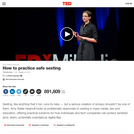
Sexting, like anything that's fun, runs its risks — but a serious violation of privacy shouldn't be one of them. Amy Adele Hasinoff looks at problematic responses to sexting in mass media, law and education, offering practical solutions for how individuals and tech companies can protect sensitive (and, ahem, potentially scandalous) digital files.
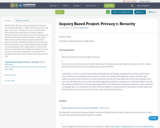
This Problem-Based Learning Assignment addresses the following questions:
- When do Americans have the right to privacy?
- Are there ever any circumstances where Americans should give up certain rights to privacy in order to have greater security measures to be protected by the government?
Grabber: a John Oliver video and two articles about snapchat and internet privacy, relevant to students' worlds
Introductory mini lesson is included
In the Culminating Activity students are researching the FBI v. Apple debate. They are split into four group sand must collaborate together to come up with a stance their perspective would agree with alongside historical events in history that support their side.
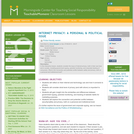
In this interactive lesson, students consider the issue of internet privacy, both in their own lives and in society, including government spying, parental monitoring, and corporate tracking of consumers. What is the connection and potential conflict between safety and privacy, both on a personal and institutional level?
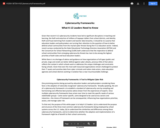
The K12 Security Information eXchange (K12 SIX) released “Cybersecurity Frameworks: What K-12 Leaders Need to Know,” a new resource for state and local education leaders encouraging the adoption of nationally recognized cybersecurity best practices. This white paper was commissioned by the State Educational Technology Directors Association (SETDA) as part of the work of its Cybersecurity & Privacy Collaborative.
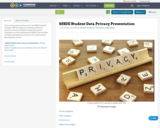
Privacy presentation presented at the MSDE Inspired Designer OER Development workshop. Privides a general overview of federal student data privacy regulations as well as Maryland COMAR. Also includes activities and additional resources for a professional development session.
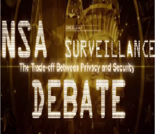
Edward Snowden's revelations about government surveillance of private citizens sparked debate around the world about the trade off between privacy and security. The Institute for Humane Studies invited Professor Ronald Sievert of Texas A&M and Cindy Cohn, legal director for the Electronic Frontier Foundation to answer questions about government data collection. This is their debate.
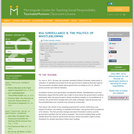
Edward Snowden's leak of classified information about the NSA's surveillance of American citizens has touched off a debate about the need for government secrecy versus the public's right to know. Two student readings and discussion questions probe the controversy.

Whilst this specifically covers the issue of privacy / moral rights / ethical rights with medical OERs, this guide is applicable for all learning and teaching subjects.

Nachhaltige Digitalisierung ist eine Digitalisierung, die sich einbettet in die Werte und Normen der Gesellschaft sowie die planetaren Grenzen beachtet. Um zur Umsetzung von nachhaltiger Digitalisierung beizutragen, hat die Volkshochschule Bonn im Rahmen der Learning City Bonn ein modular aufgebautes Weiterbildungsangebot für die DozentInnen entwickelt und stellt es Volkshochschulen und anderen Einrichtungen der Weiterbildung zur Verfügung. abei ist die Kernfrage: Wie können Dozent*innen unterstützt werden, Aspekte einer nachhaltigen Digitalisierung zu beachten und zu vermitteln? Wir verstehen dabei nachhaltige Digitalisierung als Querschnittsthema, das mit unterschiedlichen Schwerpunkten je nach Kurs und Format zur Anwendung kommen kann. Dozent*innen werden sowohl als Weiterbildungsakteure sowie als Multiplikator*innen angesprochen. Als Themenfelder nachhaltiger Digitalisierung wurden erarbeitet: Teilhabe, Klima- und Ressourcenschutz, Privatheit, Selbstbestimmung und Wohlbefinden.
Die Praxisboxen umfassen (für den Anfang) folgende Module:
- Ökologischer Rucksack des Smartphones“
- „Always on? Klimasensibel lehren“
- „Digital inklusiv – Vielfalt online ermöglichen“
- „Downsizing“
- „Sharing is caring“
- „Gemeinsam Spaß statt Social Distancing“
- "#StopFakeNews"
- „Mit Mehrdeutigkeit und Widersprüchen gut leben“
- „Wenn Du nichts bezahlst, bist Du das Produkt!“
Die Praxisboxen sind nach einer jeweils gleichen Systematik aufgebaut, die sich auf Lehr-Lernsituation sowie die Herausforderung der nachhaltigen Digitalisierung bezieht. Sie stellen praxisorientiert Handlungsmöglichkeiten, Tipps sowie Impulse zur Übertragung des Themas auf eigene Kontexte dar. Hinweise zum Weiterlesen werden gegeben. Die Praxisboxen können nach Bedarf ausgewählt werden.
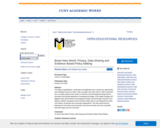
14. Brave New World: Privacy, Data Sharing and Evidence Based Policy Making
The trifecta of globalization, urbanization and digitization have created new opportunities and challenges across our nation, cities, boroughs and urban centers. Cities in particular are in a unique position at the center of commerce and technology becoming hubs for innovation and practical application of emerging technology. In this rapidly changing 24/7 digitized world, governments are leveraging innovation and technology to become more effective, efficient, transparent and to be able to better plan for and anticipate the needs of its citizens, businesses and community organizations. This class will provide the framework for how cities and communities can become smarter and more accessible with technology and more connected.